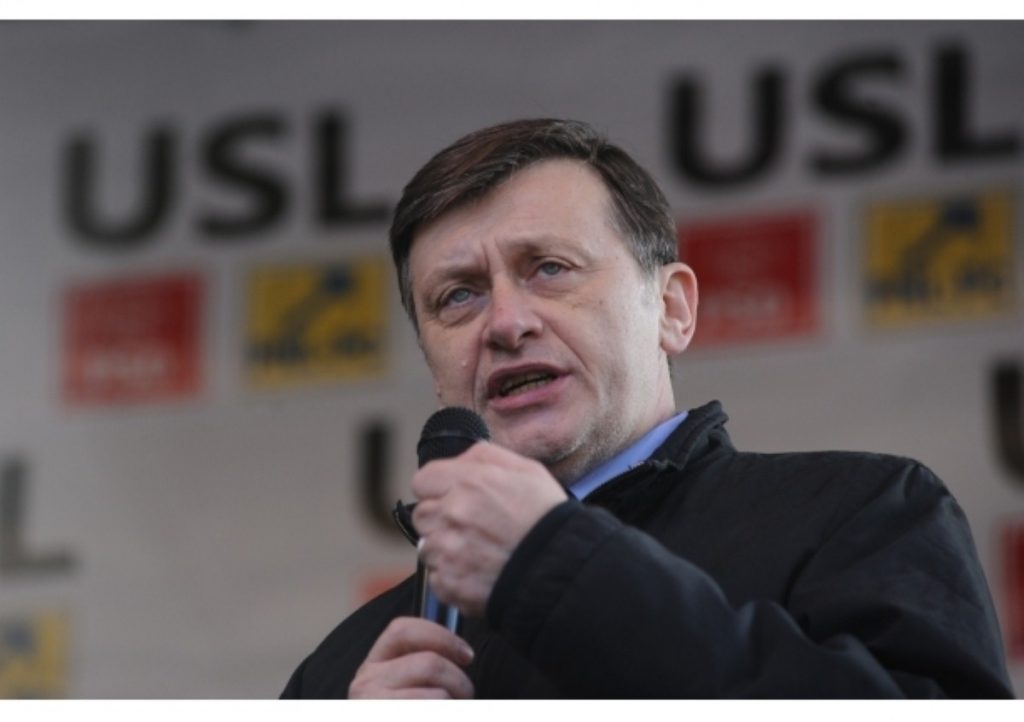Comment: Mainstream UK politicians should challenge Farage’s populism
By Crin Antonescu
When I started my political journey 20 years ago the EU represented a more democratic and prosperous future and a return to the European family. These values are why I entered politics. Little did I expect that today Romanians would be under threat of being relegated to second class EU citizenship.
As a historian I am only too aware that during times of economic crisis people, scared about their precarious situation, are happy to be given a scapegoat for their predicament. There have always been populist politicians happy to take advantage of people's fears for electoral gain. I am saddened that in 21st Century Europe, and in particular in the UK, that this is still the case.
In 2007, when Romania joined the EU, we reluctantly agreed to postpone the application of the fourth fundamental freedom of the EU – the right to live, work and learn anywhere in the EU – until 2014. We are therefore frustrated and offended that some now suggest that these restrictions should be maintained to stop an imaginary tsunami of uneducated, unwashed criminals from swamping civilization.


The reality is that this is highly unlikely to happen. Historically Europeans are reluctant to move to another country. Most do not move far from their place of birth. Indeed, the people of Britain’s market towns, so beloved by Nigel Farage, should ask themselves how many people from their school followed in the footsteps of Dick Whittington to seek their fortune on the streets of London? The answer will be not that many.
The UK historically has not been Romanians' preferred destination. France, Italy and Spain are a bigger draw due to historical and cultural connections. It is therefore not surprising that the recent Gallup Romania poll found that only one per cent of Romanians were actively seeking work in the UK for either 2013 or 2014. Only 4.6% of Romanians named the UK as their first choice destination for EU relocation.
The majority of Romanians who come to the UK are ready to work. They are predominantly young and educated. They are attracted predominantly to London, by a perceived dynamism and the availability of career opportunities. The UK is known as a place where people are rewarded for hard work. They want to achieve, gain experience, and the majority want to return home to build a successful Romania. When at home their positive experience of the UK means that the UK is their first choice as trading partner. A virtuous circle is created that benefits all.
At present there are 100,000 Romanians living in the UK. Most of them are under 35. Eighty-five per cent are employed. This is the highest employment rate of any nationality in the UK. Almost 40% have a university degree – again the highest percentage of all foreigners. There are over 4,000 Romanian doctors and nurses working in the NHS. Let's get this straight: Romanians make a substantial net contribution to the UK economy. They pay more than their fair share.
Turning to business, bilateral trade between our countries increased by 7.2% in 2012. Trade is increasing despite the difficult economic situation. There is clearly more potential for growth. The business community recognises this. Remember the recent outcry over Brazilian student visas? The introduction of stricter controls for Romanian students and graduates would be a similar PR blunder for UK plc.
It is time for the political mainstream in the UK to openly challenge the xenophobic mischief of the unapologetic populists. It is time for them to explain to Britons the benefits of Romanians to the UK and vice-versa.
Crin Antonescu was elected president of the Romanian Senate on July 3rd 2012. He is the candidate of the ruling Social Liberal Union (Liberal and Socialist parties) coalition for the 2014 presidential elections. If elected he will be the first post-Ceausescu president never to have been a member of the Communist party. Between July and August 2012 he served as acting president of Romania during the suspension of president Basescu.
The opinions in politics.co.uk's Comment and Analysis section are those of the author and are no reflection of the views of the website or its owners.












